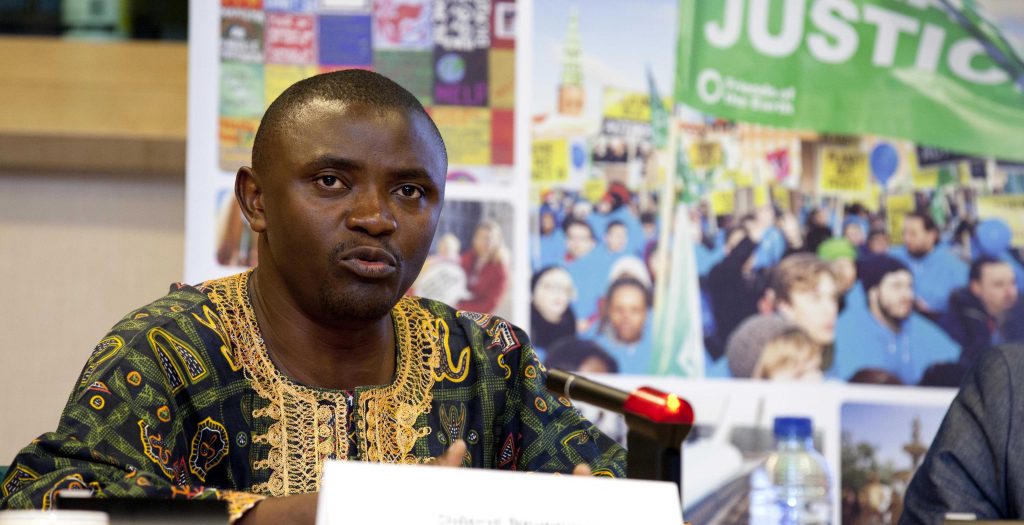Brussels, 29 May 2008 – Victims of human rights and environmental abuses by European companies around the world could find justice in European courts under proposals unveiled today at an international conference at the European Parliament. [1]
The European Coalition for Corporate Justice (ECCJ) – a leading network of over 250 civil society organisations around Europe – has revealed policy proposals developed by a team of legal experts which if adopted by the European Union would guarantee the legal responsibility of companies based in Europe, and their directors, for human rights or environmental violations committed by their subsidiaries or subcontractors anywhere in the world.
ECCJ has found that the legal structure of companies and weak accountability mechanisms all too often result in ethical mismanagement by companies. From mercury poisoning in South Africa to child labour in India, companies’ breaches of environmental and human rights standards have revealed systemic failings in the operation of many companies that has resulted in environmental and social harm for many years.
“In light of globalisation the current situation is unsatisfactory. Host States competing to attract foreign direct investment from companies are unable or unwilling to protect their populations, including communities affected by the activities of transnational corporations,” says Olivier de Schutter, the newly appointed UN Special Rapporteur for the Right to Food. “What’s more home States of these corporations are mostly reluctant to provide remedies to victims or to impose human rights obligations on parent companies to control their international operations.”
To address this situation, ECCJ is calling on the European Union to accept three proposals detailed in its report:
– The extension of the direct liability of parent companies of multinational enterprises operating in Europe. This measure would assure that parent companies do not only obtain the economic benefits of their operations but are also made legally responsible for the negative impacts on people and the planet they and their subsidiaries cause.
– A mandatory duty of care for parent companies in Europe to prevent human rights abuses by persons under their economical influence. This would mean that companies would have to take reasonable steps to make sure no human rights or environmental abuses were committed along their supply chain, or by any associates operating within their ‘sphere of responsibility’, or face legal action in Europe.
– A mandatory system for large companies to report on their social and environmental risks and impacts. ECCJ has developed a model which would enable the European Union to increase the transparency of business’ activities, products and services needed by investors, consumers and local communities to make informed decisions, while also establishing a level playing field for all companies residing in the European Union.
“Extra territorial prosecution against the worst corporate abuses is allowed under the Brussels Convention, and recommendations to make company directors personally liable are already supported in the European Parliament,” says Richard Howitt MEP (UK, Labour), European Parliament Rapporteur on Corporate Social Responsibility. “Now is the time for the European Union to have the political will to implement these proposals.”
The measures proposed would ensure that multinational enterprises with responsible environmental and human rights practices are not placed at a competitive disadvantage within the European Community.
“ECCJ believes that these proposals would lead to a coherent and harmonised approach to business regulation, putting an end to the unfair competition caused by companies who profit from human rights and environmental abuses,” says Ruth Casals, coordinator of the European Coalition for Corporate Justice (ECCJ), a network that counts the International Federation of Human Rights (FIDH), Friends of the Earth, several Oxfam affiliates and national chapters of Amnesty International, WWF and Greenpeace among its membership. “These proposals will provide long needed justice for victims of environmental or human rights abuses by companies based in Europe.”
The proposals revealed today are very timely as they represent a consistent next step to the recent report by the UN Special Representative on Business and Human Rights, John Ruggie. Ruggie has called on States to step up their efforts to protect citizens from corporate misconduct, and for companies to respect human rights. He highlighted the need for victims to have access to justice in order to obtain redress.
***
NOTES
[1] The report ‘Fair Law: Legal Proposals to Improve Corporate Accountability for Environmental and Human Rights Abuses’ can be found online at www.corporatejustice.org








